Design a Gym That Works for Every Workout
The right gym layout can boost motivation and keep members coming back. Learn how to plan your space, choose the right zones, and design a layout that supports your goals.
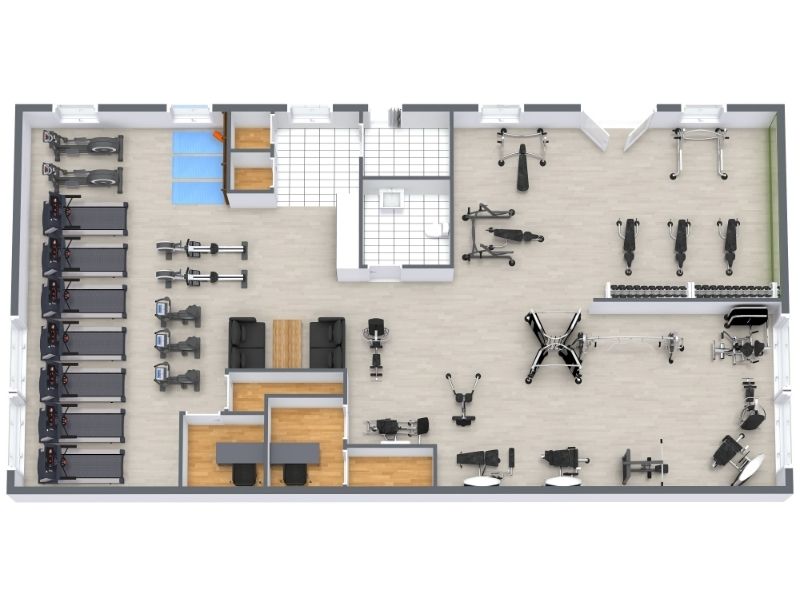
The floor plan for your gym or fitness club is an essential element for customer satisfaction. A good gym layout feels spacious, uncrowded, and downright encouraging.
In contrast, a poor design can lead to crowded areas, unsafe situations, and unmotivated clients. So it’s crucial to do your research and create an excellent gym floor plan.
Types of Gyms
Before developing a gym floor plan, defining what type of gym you are creating is important. The gym category includes home gyms, personal training studios, apartment gyms, hotel gyms, activity-specific gyms (pilates, barre, CrossFit), small and large membership fitness centers, and more. Maybe you have even come up with a new gym concept to launch!

Size
As you review inspirational floor plans, it’s good to have a gym size range in mind. The type of gym will also help you determine a starting floor plan size.
For example, a yoga studio usually requires less space per person than an equipment-filled personal training gym. Likewise, a home gym and an apartment gym is usually quite a bit smaller than a large fitness center.
One way to figure out a size range is to list how much space you need for your key gym activity areas (see our list below) and build up the total size from there. Another way to estimate a starting floor plan size is to allocate space per gym member.
One rule of thumb recommends that the exercise area occupy 10-15 sq ft (1-1.5 m2) per user, not including space for the entrance, storage, restrooms, and other common areas.
So if you expect 100 members for your yoga studio, you could start with floor plans 1000 sq ft (90 m2) or larger.
Similarly, if you are hoping for 1000 members for your gym, start with floor plans above 10,000 sq ft (930 m2). For reference, large fitness centers often occupy 30,000 sq ft (2,800 m2) or more.
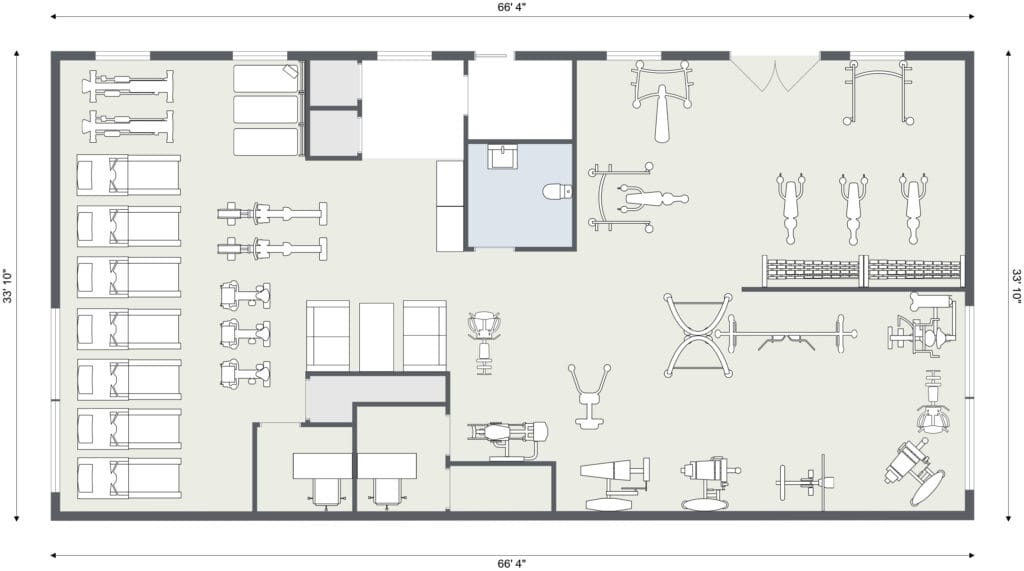
Key Activity Areas
As you review gym floor plans and develop your unique version, you need to know which activities your gym will provide.
By reviewing sample floor plans and then playing around with your gym layout ideas, you can plan out how you want to group the key equipment.
For cardio equipment such as treadmills and elliptical machines, you’ll often see grid layouts, which are clear to navigate.
Be sure to consider the traffic flow around the equipment and potential pinch points, such as an aisle blocked by people waiting to enter a fitness class.
Here’s a list of typical gym amenities. Which will be part of your floor plan?
Entrance/membership
Often a desk or counter at which to greet clients and accept payments. It could include an office in which to sign up new members and a waiting area.
Fitness areas
Fitness areas could include open training spaces, such as a warmup/stretch area, cardio area (treadmill, elliptical, etc.), free weights, and resistance training machines.
This category also includes group exercise rooms for yoga, Pilates, spin, aerobics, step, and other classes.
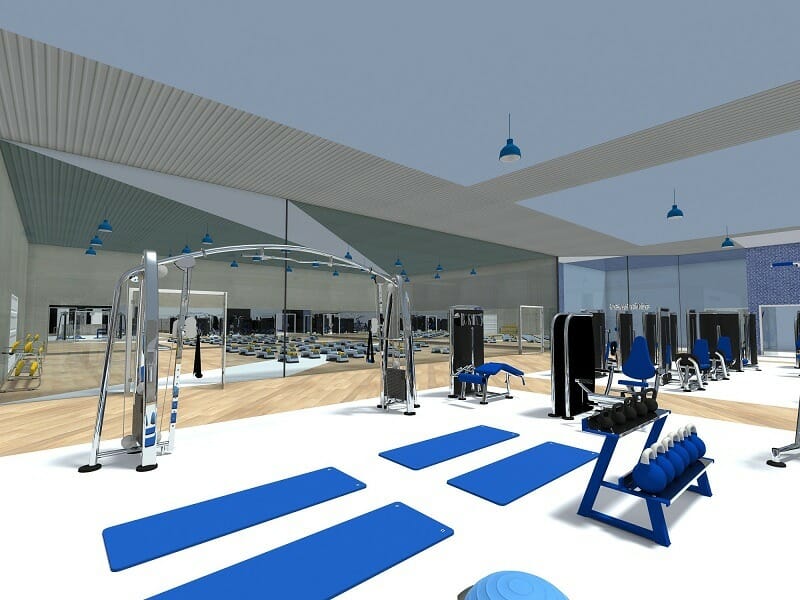
Offices
For a more significant size fitness center, there are usually several offices for gym management and staff.
Juice bar, food, retail
Some gyms add extra revenue from sales of juices, snacks, clothing, and other retail products.
Locker rooms and bathrooms
Larger studios will provide a men’s and women’s locker room. Some high-end gyms may include spa-like amenities like a jacuzzi or sauna.
In contrast, a small gym may provide a single multi-gender bathroom and storage cubes for personal items right in the workout area.
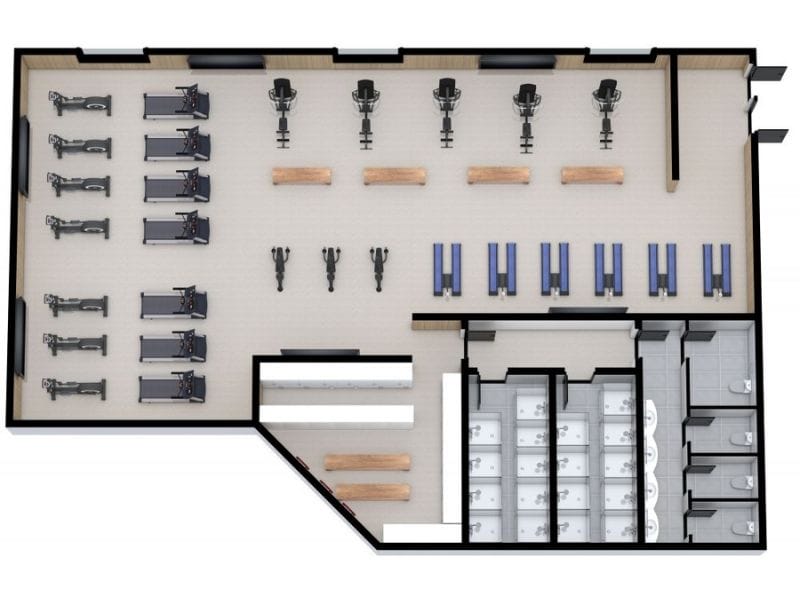
Storage
Will you need to store step aerobics supplies, fitness mats, or yoga gear such as blocks and straps? Be sure to plan for any storage needs.
Safety
Safety is a crucial element of any gym floor plan. Gym staff should have visual access to all equipment, so watch out for hidden nooks and spaces in your floor plan.
You also want to avoid trip hazards - for example, placing equipment too close together or right around a tight corner where someone could bump into it.
Electrical cords are another potential trip hazard.
So think about your gym equipment’s electrical requirements and ideally build electricity into the floor rather than running cords across the carpet.
Good indoor air quality is essential with large groups of people working out, so think about how your air conditioning, windows, and fans work into your floor plan. Bright lighting also helps with safety.

Meeting Code Requirements
You may want to consult with an experienced professional before you finalize your floor plan, as it will likely need to meet your locality’s fire and building codes.
For example, there may be requirements on total occupancy, the number of bathrooms, the number and width of doors, and the width of stairs, aisles, and corridors.
Fire protection systems, such as sprinklers and fire alarms, may also be required.
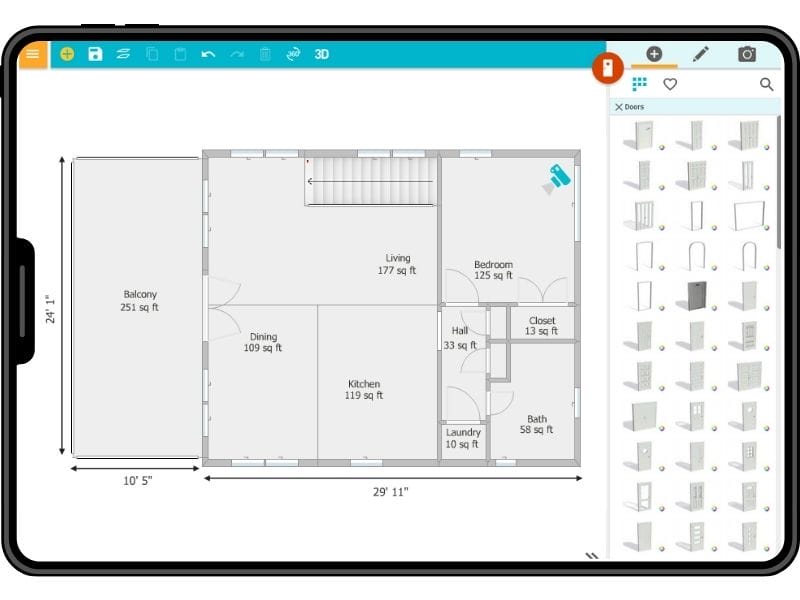
Plan Your Gym with RoomSketcher
Build a gym that’s functional, safe, and motivating. Create detailed, accurate floor plans and see them come to life in 3D.
- Draw your floor plan to exact measurements
- Experiment with different equipment placements
- Plan smooth traffic flow and open spaces
- Visualize materials, colors, and lighting in 3D
- Share your design with partners or clients
Related Articles
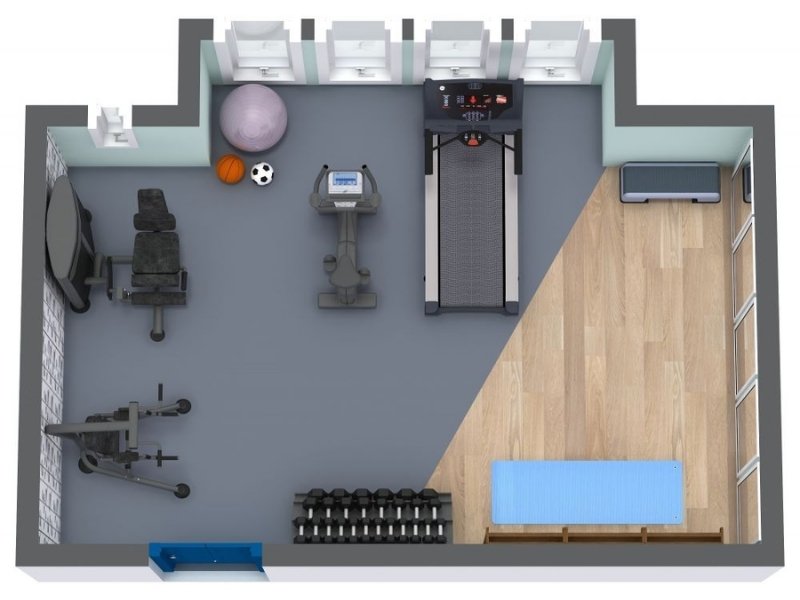
Smart Home Gym Layouts for Every Room Size
A home gym gives you the freedom to work out anytime in a space that’s comfortable and convenient. Before you buy equipment, it helps to plan your layout so it fits your exercise goals and your available space.

Fitness Center Floor Plans: Ideas for Indoor and Outdoor Spaces
A great fitness center layout helps members move easily between workouts and amenities while keeping the atmosphere inviting. With smart planning and clear zoning, you can create a space that supports every type of workout.

9 Best Commercial Floor Plan Software Tools
The best way to attract interest, test out different layouts, and communicate design intent is with floor plan software. But which one should you choose? We've made a list of the best options for you.
